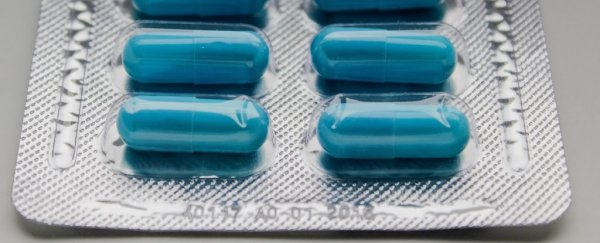As the COVID-19 pandemic continues to spread across the world, killing thousands and bringing economies to their knees, doctors, scientists and governments are on the lookout for safe and effective treatments to help those who are sick.
And yet a large issue with COVID-19 is that there is, as yet, no cure.
Though there are treatments that can alleviate the symptoms – such as difficulty breathing – they do not address the underlying cause: the virus.
The idea is that treating the symptoms will help prolong a patient's life and buy time for their own immune systems to kick in and remove the infection.
While research into related coronaviruses over the last few decades has brought some promising looking drugs, only large clinical trials on patients with COVID-19 will be able to reveal precisely whether these interventions are safe and effective.
Unfortunately, these kinds of large trials take time to carry out, but they are ongoing.
The World Heath Organization (WHO) announced it has helped to launch four "mega trials" on COVID-19 and there are countless more smaller ones coordinated in countries worldwide.
The WHO-backed trials are focusing on drugs that are thought to directly block SARS-CoV-2 – the virus strain that causes COVID-19 – from replicating inside our lungs. Below are some of the main drugs these trials are looking at.
Remdesivir
This is an intravenous antiviral drug that was developed to block infection with related coronaviruses and even Ebola, and is one of the drugs the WHO is helping to investigate.
Remdisivir has already been shown to work against SARS-CoV-2 in cells in a dish in a lab as well as in mice infected with the virus. Remdesivir specifically targets key viral proteins involved in making new copies of the virus and prevents them from working.
Remdesivir has already been used in some COVID-19 patients in the US and appears safe, but large trials are needed to really know if this is the case.
Lopinavir/ritonavir
This is a drug combination used against viruses like HIV. It works in a similar way to remdesivir by blocking key viral proteins called "proteases".
Lopinavir/ritonavir has also been shown to be effective against SARS-CoV-2 in lab cells as well as in mice and is being tested alongside an antiviral drug called interferon beta.
This is currently used to treat multiple sclerosis and can enhance the natural defences of the body's cells against the COVID-19 coronavirus.
Chloroquine and hydroxychloroquine
Both of these drugs are currently used to treat malaria and the autoimmune disease lupus.
Chloroquine has been tested against lots of different infections because in the lab it can block viruses – including SARS-CoV-2 - from getting inside cells placed in a dish and so prevent infection.
Outside the lab, chloroquine has not been demonstrated to have a profound effect at preventing disease and there is limited evidence so far that it can work for COVID-19, despite receiving a lot of hype from President Donald Trump.
But again, large trials are needed and the WHO is supporting these.
Caution should be observed with chloroquine as it can have significant side effects in certain people and may even block the immune response – the desired result in lupus treatment.
Two other options
The above potential treatments all work by blocking some key element of the virus infection machinery using small molecules. Two other kinds of treatments are also being explored in trials that work in a different way.
The first is passive immunisation which is the transfer – or transfusion – of potential protective antibodies from someone who has been infected and recovered from COVID-19 to someone who is at high-risk or is suffering from a SARS-CoV-2 infection.
This so-called "convalescent sera" (which is a purified blood product from someone who has recovered from COVID-19) can block SARS-CoV-2 in cells in a dish in the lab and has the potential to help develop treatments.
Passive immunisation for COVID-19 is being tested in trials across the world and so far results seem to suggest it is safe to use.
Another kind of possible treatment works by blocking parts of our own immune system that are likely overreacting to SARS-CoV-2 infection and contributing to the damage in our lungs.
In the limited studies that have been conducted on COVID-19, it seems that in some severe cases our immune response goes into overdrive without being able to clear the infection and this can increase the severity of the disease. When this happens, high levels of inflammation is found in the lungs.
Potential treatments that look at blocking the immune components linked to this severity have begun. That said, extreme caution must be taken when manipulating the immune response during an infection as in the absence of other therapies we rely on our immune response to limit the virus replicating.
So although specific treatments for COVID-19 are not yet available, drugs are being tested and clinical trials and starting to yield results. This, combined with the further knowledge that scientists are gaining about SARS-CoV-2 will help massively until a vaccine becomes available. ![]()
Connor Bamford, Research Fellow, Virology, Queen's University Belfast.
This article is republished from The Conversation under a Creative Commons license. Read the original article.
